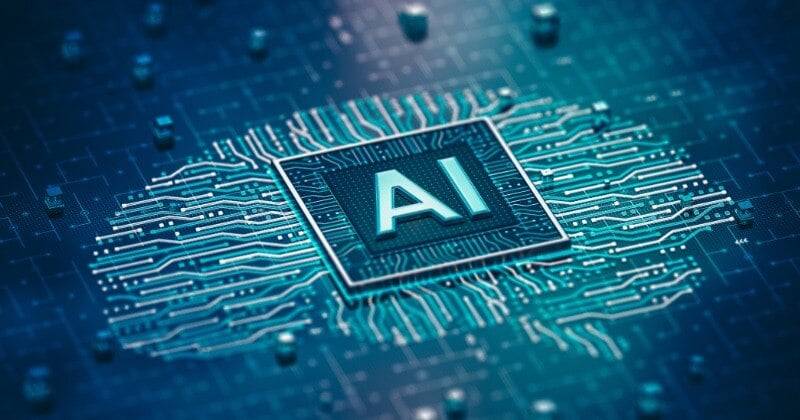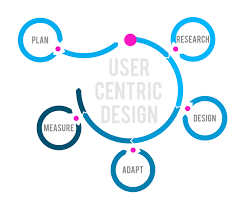Understanding the Meaning of Artificial Intelligence
Artificial Intelligence, commonly referred to as AI, is a transformative technology that is reshaping industries and influencing various aspects of daily life. But what exactly does artificial intelligence mean?
Defining Artificial Intelligence
At its core, artificial intelligence refers to the capability of machines to mimic human cognitive functions. This includes learning from experience, recognizing patterns, understanding language, solving problems, and making decisions. AI systems are designed to perform tasks that typically require human intelligence.
Types of Artificial Intelligence
AI can be categorized into two primary types: narrow AI and general AI.
- Narrow AI: Also known as weak AI, this type is designed to perform a specific task or a set of tasks. Examples include virtual assistants like Siri or Alexa, recommendation algorithms on streaming services, and autonomous vehicles.
- General AI: Often referred to as strong AI or AGI (Artificial General Intelligence), this type would possess the ability to understand, learn, and apply intelligence in a broad range of contexts much like a human being. As of now, general AI remains theoretical and has not been achieved.
The Role of Machine Learning
A significant component of artificial intelligence is machine learning (ML), which involves training algorithms using large datasets so they can learn patterns and make predictions or decisions without being explicitly programmed for each task. Machine learning enables systems to improve over time as they are exposed to more data.
Applications of Artificial Intelligence
The applications of AI are vast and varied across different sectors:
- Healthcare: AI is used for diagnostic purposes, personalized medicine recommendations, and even robotic surgeries.
- Finance: In the financial sector, AI helps in fraud detection, algorithmic trading, and risk management.
- Manufacturing: Automation powered by AI improves efficiency in production lines through predictive maintenance and quality control.
- Agriculture: Farmers use AI for crop monitoring through drones and smart irrigation systems that optimize water usage.
The Future of Artificial Intelligence
The future holds immense potential for artificial intelligence as it continues to evolve. With advancements in computing power and data availability, we can expect more sophisticated applications that will further integrate into our daily lives. However, this also raises important ethical considerations regarding privacy, job displacement, and decision-making transparency that society must address.
Conclusion
The meaning of artificial intelligence extends beyond mere technological advancement; it represents a fundamental shift in how we interact with machines. As we continue to explore its possibilities and challenges, understanding the essence of AI becomes crucial for harnessing its full potential while ensuring responsible use.
Understanding Artificial Intelligence: 8 Key Insights into Its Meaning and Impact
- Artificial intelligence is the simulation of human intelligence processes by machines, especially computer systems.
- AI involves learning, reasoning, problem-solving, perception, and language understanding.
- Machine learning is a subset of AI that enables machines to learn from data without being explicitly programmed.
- Deep learning is a type of machine learning that uses neural networks to mimic the way the human brain works.
- AI applications include speech recognition, image recognition, natural language processing, and autonomous vehicles.
- Ethical considerations are important in AI development to ensure fairness, transparency, and accountability.
- AI has the potential to revolutionize various industries such as healthcare, finance, transportation, and entertainment.
- Continuous research and innovation are essential for advancing AI technologies and addressing societal challenges.
Artificial intelligence is the simulation of human intelligence processes by machines, especially computer systems.
Artificial intelligence is fundamentally about creating systems that can perform tasks traditionally requiring human intelligence, such as recognizing speech, making decisions, and understanding language. By simulating these cognitive processes, AI enables machines to analyze data, learn from it, and adapt to new inputs—much like a human would. Particularly in computer systems, this involves implementing algorithms that allow machines to process information and respond intelligently. This capability not only enhances efficiency but also opens up new possibilities in fields ranging from healthcare to finance, where AI can provide insights and solutions at unprecedented speeds and scales.
AI involves learning, reasoning, problem-solving, perception, and language understanding.
Artificial intelligence encompasses a range of complex processes that simulate human cognitive abilities, including learning, reasoning, problem-solving, perception, and language understanding. Learning allows AI systems to adapt and improve from experience by analyzing data patterns. Reasoning enables them to draw conclusions and make decisions based on available information. Problem-solving involves identifying solutions to complex challenges, while perception allows AI to interpret sensory inputs such as visual or auditory data. Language understanding enables AI systems to comprehend and generate human language, facilitating natural interactions between humans and machines. Together, these capabilities empower AI to perform tasks that traditionally require human intelligence, making it an invaluable tool across various industries.
Machine learning is a subset of AI that enables machines to learn from data without being explicitly programmed.
Machine learning, a subset of artificial intelligence, revolutionizes how machines acquire knowledge and make decisions by learning from data patterns without the need for explicit programming. This powerful technology allows machines to continuously improve their performance and accuracy as they process and analyze vast amounts of data, ultimately enhancing their ability to adapt to new information and tasks efficiently.
Deep learning is a type of machine learning that uses neural networks to mimic the way the human brain works.
Deep learning is a specialized branch of machine learning that leverages neural networks to replicate the intricate processes of the human brain. By structuring algorithms in layers that progressively extract higher-level features from raw data, deep learning models can autonomously learn and make decisions based on complex patterns and relationships. This approach enables machines to tackle tasks such as image and speech recognition with remarkable accuracy, mirroring the cognitive capabilities of the human mind in processing information and drawing insights.
AI applications include speech recognition, image recognition, natural language processing, and autonomous vehicles.
Artificial intelligence has become an integral part of modern technology, manifesting in various applications that enhance everyday life. Among these applications, speech recognition enables devices to understand and respond to human language, making interactions with technology more intuitive and efficient. Image recognition allows systems to identify and analyze visual information, which is crucial for tasks ranging from organizing photo libraries to enabling advanced security features. Natural language processing (NLP) empowers machines to comprehend and generate human language, facilitating seamless communication between humans and computers through chatbots and virtual assistants. Furthermore, autonomous vehicles represent a groundbreaking application of AI, using a combination of sensors, machine learning algorithms, and real-time data processing to navigate roads safely without human intervention. These diverse applications highlight the versatility and transformative potential of AI across various sectors.
Ethical considerations are important in AI development to ensure fairness, transparency, and accountability.
When developing artificial intelligence, ethical considerations are paramount to ensure that the technology is used responsibly and benefits society as a whole. Fairness in AI involves creating systems that do not discriminate against individuals or groups based on biased data. Transparency is crucial, as it allows users and developers to understand how AI systems make decisions, fostering trust and enabling informed oversight. Accountability ensures that there are clear lines of responsibility when AI systems cause harm or make errors, allowing for corrective actions and improvements. By prioritizing these ethical principles, developers can create AI technologies that are not only innovative but also equitable and trustworthy.
AI has the potential to revolutionize various industries such as healthcare, finance, transportation, and entertainment.
Artificial intelligence has the potential to revolutionize various industries by introducing innovative solutions and enhancing efficiency. In healthcare, AI can improve patient outcomes through advanced diagnostic tools and personalized treatment plans. In the finance sector, AI algorithms can detect fraudulent activities and optimize investment strategies with unprecedented accuracy. The transportation industry benefits from AI through the development of autonomous vehicles and smart traffic management systems, which promise safer and more efficient travel. In entertainment, AI is transforming content creation and personalization, offering tailored experiences to audiences worldwide. As these industries continue to integrate AI technologies, they are poised for significant advancements that could reshape their landscapes entirely.
Continuous research and innovation are essential for advancing AI technologies and addressing societal challenges.
Continuous research and innovation play a crucial role in advancing AI technologies and tackling societal challenges. As AI continues to evolve, ongoing exploration and development are necessary to push the boundaries of what these systems can achieve. This involves not only improving algorithms and computational power but also ensuring that AI applications are ethical, transparent, and beneficial to society. By investing in research, we can address pressing issues such as healthcare disparities, environmental sustainability, and economic inequality. Furthermore, innovation fosters the creation of new tools and solutions that can enhance productivity, improve quality of life, and drive economic growth. It is through this relentless pursuit of knowledge and improvement that AI can be harnessed effectively to meet the complex demands of our world.



